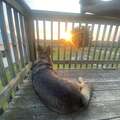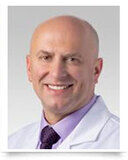Mosaic Porcine Heart Valve Replacement Still Tickin’ 12 Years Later
By Adam Pick on March 5, 2011
In case you missed it, some interesting data was just released about the Mosaic porcine heart valve replacement. According to a report in The Journal of Thoracic and Cardiovascular Surgery, the Mosaic bioprosthetic valve — which has been implanted in patients for the past 12 years — continues to demonstrate positive performance.

Mosaic Bioprosthetic Heart Valve Replacement (Porcine Tissue)
As you may know, artificial heart valves are designed to replace diseased heart valves — typically the aortic or mitral valve — which suffer from conditions including stenosis (narrowing heart valve) and regurgitation (leaking heart valves).
Biological heart valve replacements are made from cow (bovine) tissue, pig (porcine) tissue or horse (equine) tissue. While less durable than mechanical heart valve replacements, biological heart valve replacements do not require the patient to take anticoagulants (Coumadin) for the balance of their lives.
The Mosaic heart valve replacement, which received FDA approval in 2000, is made from pig tissue and was designed to protect against post-operative issues including (i) valve calcification and (i) structural degeneration.
As for the methodology of this report which evaluated the Mosaic’s performance:
- The study involved 1,029 patients.
- 797 patients (with a mean age of 69 years) had aortic valve replacement.
- 232 patients (mean age of 67) had mitral valve replacement.
- The patients received Mosaic porcine heart valve replacements between 1994 and 2000.
- The patients were followed for 12 years at six international centers.
The data published in The Journal of Thoracic and Cardiovascular Surgery revealed:
- Freedom from structural valve deterioration of 93.3 percent in aortic valve replacement patients 60 years and older; 95.3 percent in mitral valve replacement patients 70 years and older.
- Hemodynamic performance data showed stability up to 10 years, indicating durability of the Mosaic bioprosthesis over time.
“These strong findings address and support the intermediate- to long-term durability of the Medtronic Mosaic bioprosthesis in the aortic and mitral position,” Dr. Eric Jamieson, professor of surgery from the University of British Columbia in Vancouver and a principal investigator of the study since 1994, said in a statement.
It was also interesting to read Dr. Jamieson’s comments about the Mosaic relative to the patient’s age. Dr. Jamieson stated, “I expect these results will be reviewed favorably by cardiothoracic surgeons, especially for patients 60 years of age and older requiring aortic valve replacement and patients 70 years of age and older who are candidates for mitral valve replacement.”
Keep on tickin!
Adam
|
Amanda says on March 9th, 2011 at 12:48 pm |
|
Has there been any research or follow up on those younger patients who have this type of valve replacement? My boyfriend had this done at 26 years old to replace his bicuspid valve, and I’m concerned about the durability of it? He also complains of dizziness where he feels as though he could pass out, and on occasion he gets a sharp shooting pain along the life side of his ribs/chest? |
 |
|
Andrew Brennan says on March 10th, 2011 at 5:27 pm |
|
Adam, thanks for the book and the blog, I found both very helpful as I prepared for aortic valve replacement surgery over the past few months. My congenital bicuspid valve was stenotic, heavily calcified and leaking badly, yet I was asymptomatic and swam a mile the weekend before my surgery. Today marks two weeks since the surgery and my recovery is going very well, I’m walking 2 miles a day and have reduced my pain medication by 50% since I left hospital 10 days ago. My experience seems to be at the more positive end of the scale compared to many people. The surgery was performed at NY Presbyterian Cornell Medical Center by Dr. Leonard Girardi. The proceedure lasted 4.5 hrs and I was on cardio pulmonary bipass (heart lung machine) for 70 minutes – amazing! I spent 18 hours in the ICU which were quite tough but thanks to your book I knew what to expect and so was better equiped to deal with it. I walked 500 yards 30 hours after the surgery and did 4 walks totaling 1 mile on the second day after the surgery. I was dischaged after 5 days and have exercised every day since, building up to a mile in the morning and the afternoon by day 8 after surgery. I would cite 5 reasons why my recovery has gone so well so far: 2. I knew what to expect going in so nothing much threw me. Its far easier to deal with waking up in the ICU with the tube down yor throat and a catheter in your jugular if you know about it in advance. Adam’s book and the stories of people on this blog played a big part in this. 3. The surgery was well planned in so much as I had time to organize everything else in my life and get myself ready for the surgery itself, and things like being away from work. I have seen and heard about other people who have had open heart surgery done on an emergency basis and they have no idea what to expect and I can see why that would be quite overwhelming. 4. I was very fortunate to have access to a top rated surgeon in one of the best hospitals in the field. Dr. Girardi does several hundred of these proceedures each year. If you look at the data on valve replacement surgery outcomes you generally see the average data across multiple hospitals. The data for top tier academic medical centers is much much bettter than it is for local hospitals where the staff may only do a handful of your specific surgery in a year. 5. I was, and am, highly motivated to get better. I have two young boys, a beautiful wife and many family and friends who are wishing me well and supporting me, and for whom I want to make a complete recovery. The only thing I would do differently with the benifit of hindsite at this point is get a private room for the hospital stay. Its hard enough to get sleep after a major opperation with all the monitoring, meds and discomfort. If on top of this you have a room mate who is having their own problems sleep can become nearly impossible. My first night in the step down unit after the ICU was a nightmare as my roommate was delirious. I got no sleep and demanded to be changed to another room the next day. Things improved dramatically but it was still hard to sleep with twice the number of interruptions as I would have had by myself. Hope this is helpful |
 |
|
Kathy says on March 15th, 2011 at 8:35 pm |
|
I was 60 years old & had a pig valve replacement in 2009 at the Cleveland Clinic for stenosis of my aortic valve. Prior to surgery I was asked by my doctor if I had a valve preference. I replied that I trusted his judgement & he chose the pig valve. I was not informed of the Mosac valve. It certainly would have been my choice of not having to look forward to the possibly of having a reoperation in 10 years. I’m not sure if the Clinic had this option. |
 |













